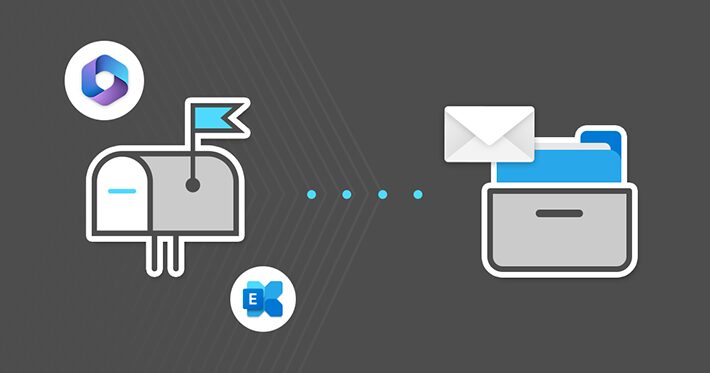In a world where people are becoming completely digital when it comes to carrying out everyday tasks, the ability to retrieve historical data is not just a convenience. It’s a legal necessity. That said, the realm of e-discovery becomes essential in the process of navigating the legal requirements of email archiving for e-discovery. What is e-discovery, then?
E-discovery is the central component of legal proceedings, demanding organizations to manage their electronic documents, especially emails, with utmost diligence. This necessity introduces the importance of email archiving – a process that preserves and makes searchable the vast volumes of email data that businesses generate daily.
Understanding and navigating the legal requirements of email archiving for e-discovery are essential for organizations to maintain compliance, mitigate risks, and ensure a state of readiness for legal scrutiny.
The Legal Landscape
The legal landscape governing electronic communications is quite complex, governed by a set of laws and regulations that vary by jurisdiction. In the United States, for instance, the Federal Rules of Civil Procedure (FRCP) have been amended to acknowledge the relevance of electronic documents in litigation.
Similarly, regulations such as the Sarbanes-Oxley Act, HIPAA, and GDPR in the European Union impose strict guidelines on the retention and protection of electronic records, including emails.
Moreover, educational institutions must navigate strict education compliance requirements related to electronic communications, as student records and sensitive information are subject to specific laws like the Family Educational Rights and Privacy Act (FERPA) in the United States.
These laws mandate that organizations must not only retain emails for specified periods but also ensure that they can be retrieved efficiently to meet e-discovery requests. Failure to comply can result in severe penalties, including fines, sanctions, and loss of legal cases due to the inability to produce relevant documents.
The Importance of Email Archiving

So, what is email archiving at its very core? Email archiving is the intricate process of storing emails in a secure, searchable repository, ensuring that they are protected and retrievable over time. This process of storing your data formats is distinct from simply backing up emails.
Backing up emails is aimed more at data recovery after loss rather than ensuring data retrievability for legal or compliance reasons (the scope of email archiving). Effective email archiving systems index emails and their attachments, making them easily searchable and accessible for e-discovery purposes.
Archiving emails helps organizations comply with legal requirements in three crucial ways:
- Preserving the integrity and confidentiality of email communications;
- Providing audit trails;
- Enabling precise and swift retrieval of relevant documents.
This capability is indispensable during litigation, audits, and investigations, where the ability to produce specific emails can determine the outcome.
Email Archiving Solutions

At the heart of an effective email management strategy are email archiving solutions designed to address the dual needs of compliance and e-discovery. These solutions offer automated archiving capabilities, ensuring that all incoming and outgoing emails are captured and indexed without manual intervention. That way, organizations can mitigate the risks of data loss, unauthorized access, and non-compliance with legal and regulatory mandates.
Selecting the right email archiving solution requires a thorough assessment of an organization’s specific needs, including the volume of email traffic, regulatory requirements, and the need for scalability and security. The best solutions often offer robust search capabilities, enabling legal teams to efficiently sift through millions of emails to find the ones relevant to a case.
More importantly, they ensure data integrity through immutable storage, meaning that once an email is archived, it cannot be altered or deleted, thus preserving the chain of custody for legal purposes.
Challenges in Email Archiving for E-Discovery
Unfortunately, navigating the most common complexities of email archiving for e-discovery comes with a set of challenges. For starters, the sheer volume of email data can be overwhelming, making effective management and retrieval a daunting task. Organizations must also ensure that their archiving practices comply with both current and future regulations, requiring a proactive and informed approach to data management.
Next, the technical aspects of email archiving, such as ensuring data security, integrity, and privacy, demand specialized knowledge and resources. As a result, the need for continuous access to archived emails arises, which must be balanced with the need to protect sensitive information from unauthorized access or breaches.
Best Practices for Email Archiving

To navigate these challenges, organizations should adopt best practices in their email archiving efforts. In that sense, developing a clear email archiving policy is the first step. A clear email archiving policy should define what needs to be archived, for how long, and who will have access. Of course, regular audits and reviews of the archiving process can ensure compliance with evolving legal and regulatory requirements.
The step that follows should be to train all staff on the importance of email archiving and e-discovery readiness. Through this training, employees should understand their role in maintaining the integrity of email communications and the potential legal implications of their actions.
To further enhance the effectiveness of email archiving strategies, it is also crucial for organizations to invest in advanced archiving technologies that can adapt to the rapidly changing digital landscape. These technologies should not only facilitate the efficient indexing and retrieval of emails but also incorporate features like advanced encryption, data loss prevention, and cloud archiving solutions, which can significantly enhance operational efficiency by offering scalable storage options and remote access capabilities.
Additionally, integrating machine learning and artificial intelligence can streamline the process of categorizing and tagging emails, making it easier to manage and retrieve relevant communications for legal proceedings.
Closing Thoughts
As electronic communications continue to dominate business operations, the importance of email archiving for e-discovery cannot be overstated. Navigating the legal requirements of email archiving demands a comprehensive approach, combining technology, policy, and education.
Organizations can protect themselves against legal risks by understanding the complexities of the legal landscape and implementing effective archiving solutions. The result is proper readiness to respond to all e-discovery requests. This proactive approach not only complies with legal mandates but also fortifies the organization’s data governance strategy, securing its digital communications for the future.
